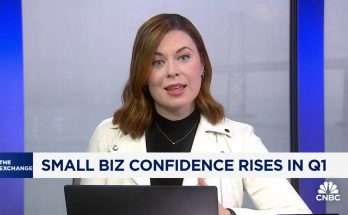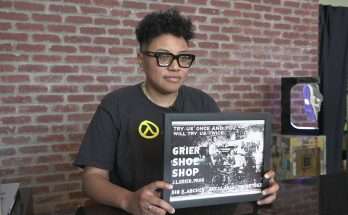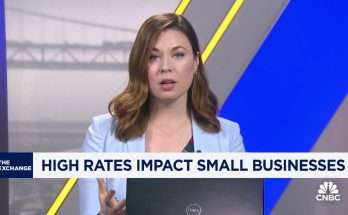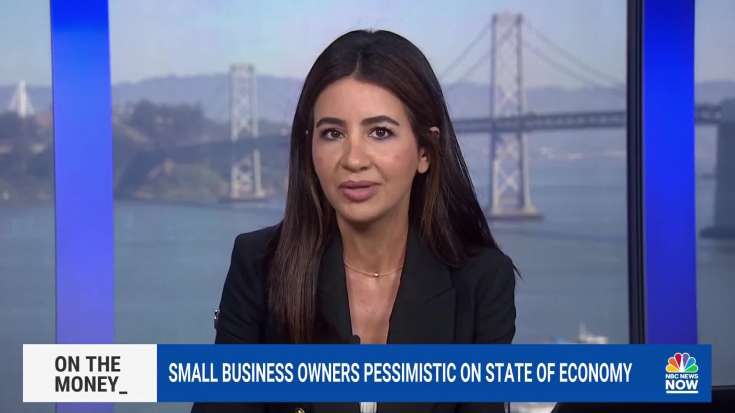
Stocks have posted sizable gains to start the year, with the S&P 500 up 8%, on hopes that a soft landing for the economy is in the cards. On Wall Street, Goldman Sachs just lowered its recession odds. The 500,000-plus jobs added by employers last month helped improved that outlook. Meanwhile, the Federal Reserve signaled last week that the “disinflationary process has begun.” But the latest wave of optimism, ranging from unbridled retail investors to revision-mode CEOs and more guarded central bankers, has not reached Main Street, where fears of a recession and frustration with high inflation remain the norm.
Nearly half of small business owners (47%) say the economy is in a recession already, with an almost equal percentage (48%) describing the economy as “poor.” That’s according to the CNBC|SurveyMonkey Small Business Survey for the first quarter of 2023.
Notably, the data is virtually unchanged from Q4 even as sentiment about the economy and in the markets has improved. One reason given for why investors have become more bullish is that stocks have already discounted a recession in current market values, especially a mild recession that is the expectation of many CEOs and economists. The latest Business Council survey of CEOs shows a decline from 13% to 5% among chief executives who expect a deep recession. “It will be a shallow recession,” said former Fed vice chair Roger Ferguson on CNBC’s “Squawk Box” Thursday in discussing those results. “So I would argue overall this is a less pessimistic set of CEOs right now but not moving into optimistic territory.”
In one sense, small businesses are past their own peak recession fears, too — 57% said the economy was in a recession in Q3 of last year, notably higher than now. But pessimism among small businesses and lack of confidence in the Fed to get inflation under control (only 31% think it is up to the task) persist even as there are many signs that inflation, at least in goods and the supply chain, are rapidly declining.
“The Fed’s job is to look ahead and project what they expect to take place — and to help everyone prepare for it. Small business owners are still reporting to us that inflation is a concern, that hiring is a challenge, and that the economy overall is unstable. These will be key measures to continue to examine in future quarters, because we’re getting clear signals from Powell that the worst is over, and yet small businesses still report being mired in a very recession-y environment,” said Laura Wronski, senior manager of research science at Momentive, which conducts the small business survey for CNBC.
The Q1 survey was conducted from Jan. 23-Jan. 30 among over 2,300 small business owners across the country.
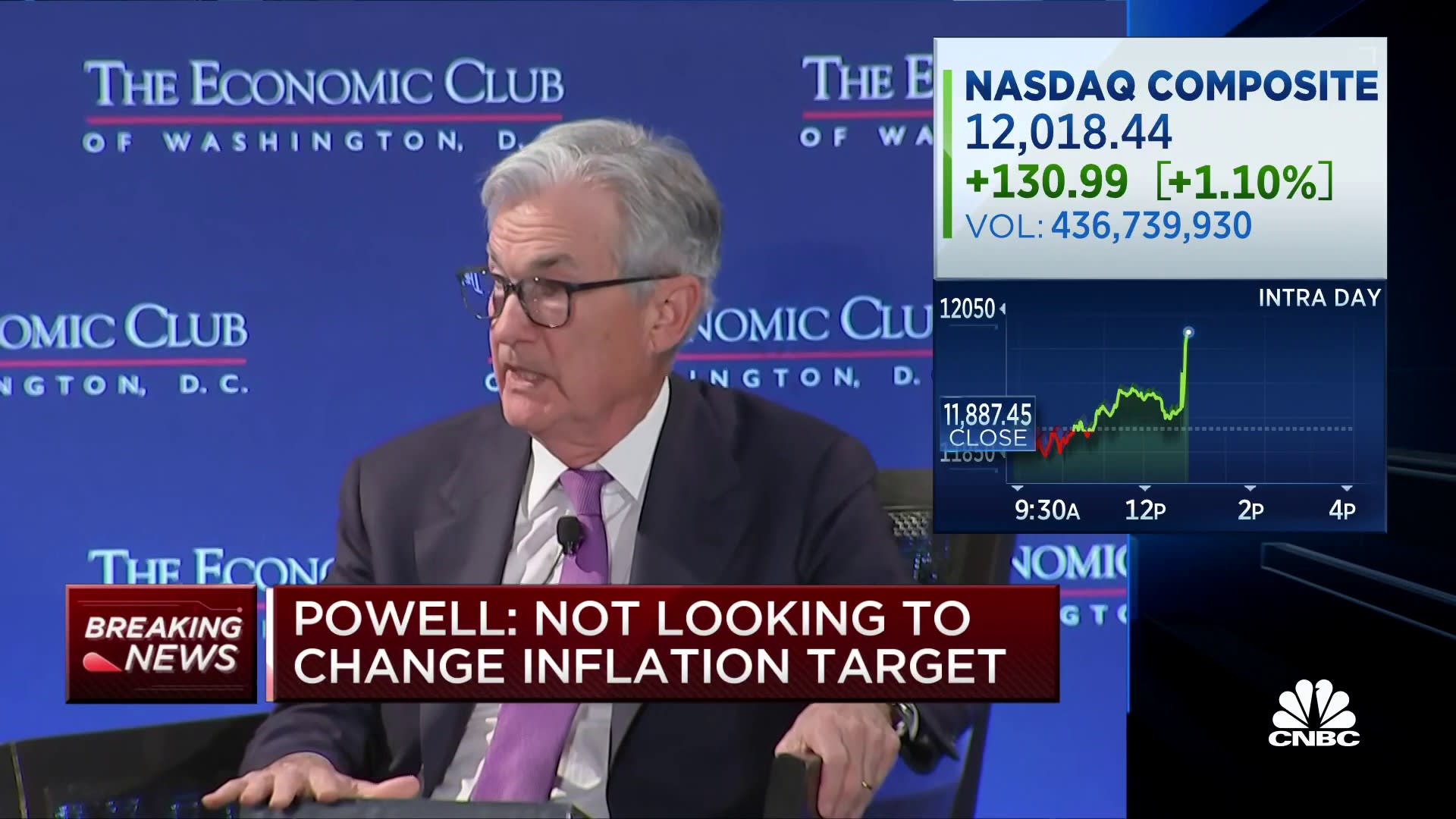
In some respects, small businesses can be a lagging indicator. Inflation is a good example.
“Small business owners have a more difficult time gaining benefits of economies of scale,” said Holly Wade, executive director of the NFIB Research Center, whose own recent surveying of small business owners finds persistent pessimism. Its next survey is due out Tuesday.
“Whether it’s inventory, trying to secure better pricing with contracts, it often takes small firms more time,” Wade said. “We are down the chain … it takes longer for small businesses to feel the impact of disinflation.”
The new CNBC|SurveyMonkey data finds 75% of small business owners saying they are still facing rising costs of supplies and just over half (51%) supply chain disruptions.
NFIB does find price pressures easing, which is a good sign, but Wade added, “Many are still encountering the disruptions and having a hard time securing product or inventory. It’s not as significant as it was last summer, but it’s still a problem, and it will take far more time on the small business end for it to ease up.”
Energy prices have come down, but Ken Simonson, chief economist for The Associated General Contractors of America, said natural gas prices remain high and diesel far above where it was a year ago for businesses that rely on it for power and transportation. And labor costs are still up a lot, even though average hourly earnings growth has tapered off. “Those are costs that won’t go away in the near term,” he said.
The CNBC survey finds a little under one-third of small businesses (29%) saying they have had open positions for at least three months, and 66% are paying higher wages to bring new employees on board.
The classic sales, employment signals of recession
Sales expectations are a worrisome sign when it comes to pegging the overall direction of the economy. The NFIB data continues to show uncertainty about the macroeconomy correlated to uncertainty about future sales. “There’s still a long way to go to be in an environment that is more conducive to operating businesses,” Wade said. When NFIB asks about business expansion plans over the next 6 months, “they are generally very pessimistic,” she added.
The latest data from the National Association for Business Economics on future sales is flashing recession as well. The NABE Business Conditions Survey for January showed a big drop in the percentage of respondents who expect their firm’s sales to increase in the next three months. “Such low percentages in the retrospective 3-months data coincide with recessions,” said Simonson, who is a NABE survey spokesperson.
The NABE survey reading on employment expectations in the coming months is also showing “quite a retreat,” Simonson said. “To me, those are the two ways you look at recession,” he said. “Is consumer spending expanding and is employment expanding, and if the answer is ‘no’ on both, then it’s recession.”
The higher interest rate environment is playing a role in business caution about growth, with the Fed’s increases pushing most business loans into double-digit percentage territory. The CNBC survey finds over one-third (37%) of business owners saying they’ve curtailed business investments this year due to higher rates; 31% say higher rates have worsened their access to capital or loans; 14% say they’ve had to seek new sources of debt or equity.
But the CNBC survey is showing evidence of a slightly better outlook on sales, with the percentage of small business owners expecting revenue to grow over the next year up by 5 percentage points quarter-over-quarter, to 43%, a small but notable bump off all-time lows hit during the past two quarters. And the percentage of owners expecting sales to decrease has declined from 28% two quarters ago to 20% now. The 28% in the third quarter of last year was the highest sales pessimism for any quarter in the past three years except for the Covid outbreak in Q2 2020.
Even as NABE survey spokesperson, Simonson is betting forward-looking pessimism turns out to be wrong in this economy, more influenced by the headlines business owners are absorbing, just like the general public — just look at egg prices — than the economic reality. “Look at these public opinion polls, they think we’re in a recession … high inflation … yet unemployment is at a 50-year low. … Knock out housing, that is 40% of CPI, and take away food and energy, and how important are airlines tickets?” he said.
In his area of construction (which excludes single-family homes) order books are full and businesses are turning projects away, he said, unable to find enough workers for the projects they’ve already signed on to complete.
Fed Chair Powell, at his recent FOMC press conference, commented on this sector specifically in discussing his belief that the U.S. economy can still post growth in 2023. “There’s a lot of spending coming in the construction pipeline, both private and public. And so, that’s going to support economic activity. So, I think there’s a good chance that those factors will help support positive growth this year. And that’s my base case is that there will be positive growth this year,” he said.
Politics is a factor in Main Street outlook
Politics plays a role in any small business survey, with a demographic that skews conservative.
“There is absolutely a fair amount of partisan bias in these responses — and in all polling about the economy right now. More small business owners are Republicans than Democrats, and Republicans are consistently more pessimistic about inflation, jobs, the likelihood of a recession, and the general state of the economy during Joe Biden’s administration,” Wronski said. “Part of the reason our Small Business Confidence Index has held within such a narrow range over the past two years is that there have been no significant shifts in sentiment among Republicans.”
Fifty-seven percent of small business owners who identify as Republicans, and 50% of independents, say the economy is already in a recession, according to the survey results, compared to bvonly 28% of business owners who identify as Democrats. That said, less than a quarter of Democrats (21%) surveyed said they don’t expect a recession anytime between now and 2024.
The Q1 CNBC|SurveyMonkey Small Business Confidence Index ticked up two points to a score of 45/100. Throughout Joe Biden’s presidency, confidence on Main Street has varied little, consistently falling within a four-point range from 42 to 46. Unlike last quarter, which showed the first-ever bump for Biden in his approval rating on Main Street, it’s now back down again near an all-time low.
Uncertainty about the economy
What’s also coloring the outlook, and Simonson said is consistent in the NABE data, is the high level of uncertainty. More than half of NABE respondents place the odds the U.S. economy is already in a recession or will enter one over the next 12 months at better than 50-50. But 40% percent of respondents in the NABE survey don’t expect a recession. “There’s less certainty than ever, more division than ever about whether we’re heading into a recession,” Simonson said.
From Warren Buffett to Fed Chair Powell, many market participants have commented on how the recent economy is unlike any you could find in an economics textbook from the past century. Wade said there is a similar caution to be observed with recent small business survey data. For the most part, every recession has been associated with lower sales and a decreasing workforce, but also a “whole fire sale scenario,” she said. That’s not the case now. “We are in a different environment, with inflation and a tight labor market. … some areas of business operations support a normal recession call, but it’s just a different landscape than what we’re accustomed to,” she said.
That is adding stress to the lives of small business owners. “In a recession, there are predictable steps of how you navigate, and in this one, the rules are not there for small businesses to follow. It’s just a whole new environment to navigate,” Wade said. “Whether we’re in a recession or not, or go into a recession or not, it’s still a difficult situation for a small business owner.”
The Fed is in agreement with Main Street on this point. “This is not a standard business cycle – where you can look at the last 10 times there was a global pandemic and we shut the economy down. And Congress did what it did and we did what it did. It’s just – It’s unique. So, I think certainty is just not appropriate here,” Powell said after the FOMC meeting.
The brightest spot in the CNBC survey may be that regardless of what turns out to be true for the economy, 65% of small business owners say they are prepared to withstand a recession. That went up quarter over quarter.
